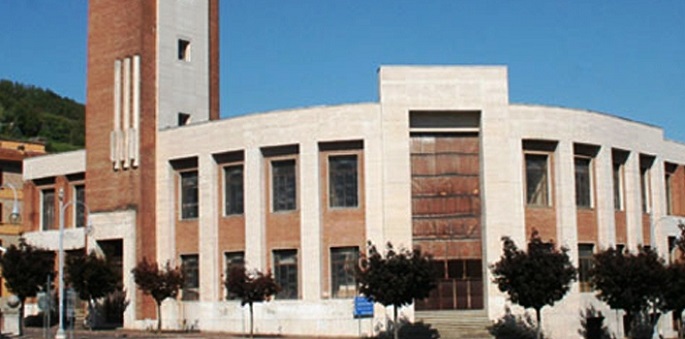House of fascism to display the wickedness of the dictatorship
Published : 26 Oct 2017, 01:29
Updated : 26 Oct 2017, 01:32
The town of Predappio, about 6500 inhabitants in the province of Forlì-Cesena, internationally known for having given birth to Mussolini, the founder of fascism, was completely rebuilt in the 1930s to represent, architecturally, a form of celebration of the regime and an environment that was supposed to contribute to the construction of its myth.
It was therefore conceived as a venue to accommodate thousands of visitors, with emblematic buildings of architectural styles that accompanied the twenty-year-old dictatorship, denoting it as a 'city of the duce', characterization that, despite its population has always shown a great democratic vocation, it continued even after the war and remains partly today, especially in the occasion of the "nostalgic" events that take place every year, in a couple of crucial dates linked to the Mussolini's events.
Among the many places of memory in Italy, Predappio is perhaps the only one in which the 'memory' is overwhelmed by ambiguity, stroking in an unwanted conflict between its negative image and its positive and cultural aspirations.
To change this state of affairs and this unwanted negative celebrity, the local municipal administration has begun for some years a journey aimed at highlighting, against an ideologically and politically instrumental view of memory and facing the recurring temptations of mythizing or to remove the past, the centrality of historical research, favoring a reinterpretation of the past far from stereotypes and simplifications. The idea behind this is to realize, in a monumental building of significant symbolic value currently in disuse, the former House of the Fascio and of Hospitality, a large international historical research center dedicated to study and the spread of knowledge about the dictatorships and totalitarianisms that characterized the last century, where the space for a great historical exposition of fascism is planned, destined to carry out a significant work of cultural information about the period between the two wars in Italy, enriching national historical museographer, which is generally limited, as to the knowledge of totalitarian regimes, in the last two years of the Second World War. For the content aspects and the exhibition modes of what, in fact, is destined to become the first Italian exhibition space on the history of the fascist dictatorship, the Bologna Parri Institute and a commission of experts coordinated by professor Marcello Flores, historian. The scientific and museum project, which has a great deal of attention to the European context and to counter the unrealistic revisionism that unfortunately unfolds in many areas of the continent, was presented to the Italian and foreign press at the Foreign Press Association in Rome, with interventions by Giorgio Frassineti, Mayor of Predappio; Massimo Mezzetti, Councilor for Culture of the Emilia-Romagna Region; Flavia Piccoli Nardelli, Culture Committee Chairperson of the Chamber of Deputies; Marcello Flores, historian, coordinator of the Scientific Committee of the project; Alberto De Bernardi, historian, member of the scientific committee of the project; Carlo Giunchi, cultural consultant, member of the Scientific Committee of the project.
The first phase of the project, funded by approx. two million euro by European and regional funds, should be ready by the end of 2018 and the whole be completed by 2020, where another three million euro will be available for global funding. Thanks to the passionate commitment of Mayor Frassineti and many others, what was a symbol of a dictatorship could find his nobility as a witness against a dictatorship that the healthy part of Italian and European citizens would not wish to repeat because, as Frassineti recalled, "the memory makes us free."


